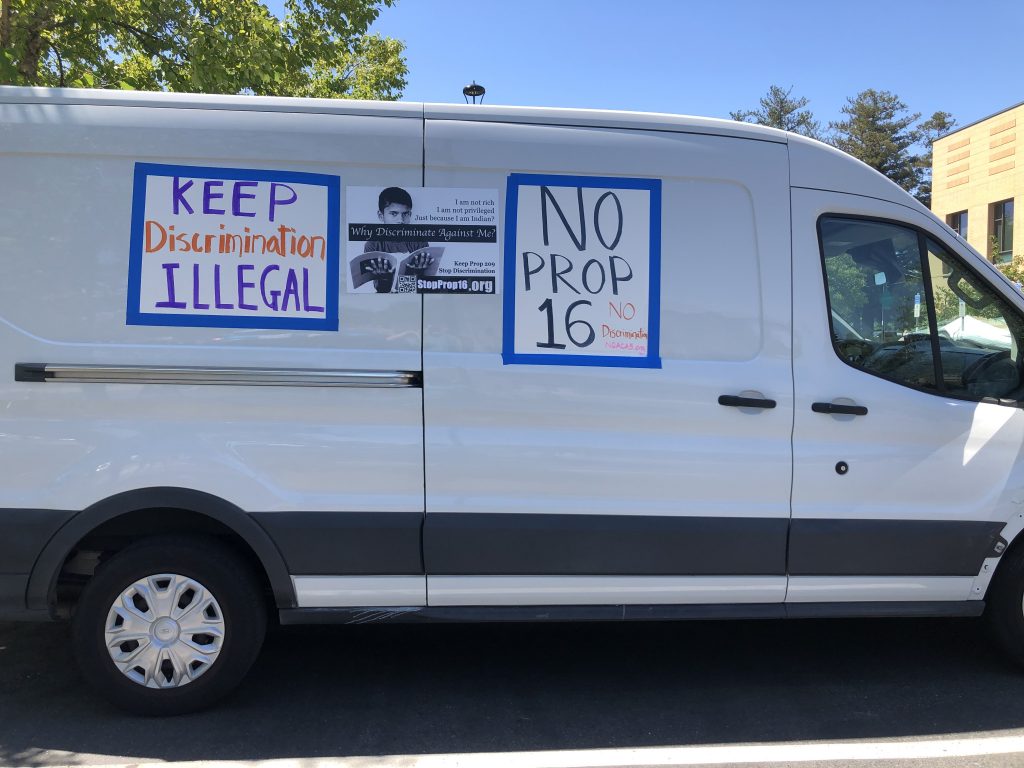A line of cars snaked out of the parking lot at Cupertino’s City Hall and wound their way through city streets into Sunnyvale on July 3. The car parade was arranged by a group of South Bay community members against Proposition 16.
“We are afraid that we are going to lose that equal opportunity, equal chance in California. It’s very upsetting,” said Ava Li. “We feel like as a society everybody is going to lose. I think this is going to hurt everybody. Regardless where you came from; regardless of your gender, your race, your home country.”
“We need to emphasize the equal rights. I think it’s not good to put the quota according to the different race,” said Vanessa Su.
Proposition 16 is a proposal on the November ballot designed to repeal Proposition 209. Proposition 209 was passed in 1996. It changed the state constitution to bar discrimination based on race, sex, color, ethnicity or national origin.
Proponents of Proposition 16 say Proposition 209 did not do what it was meant to do and it’s hurt Californians.
“While it was sold as a civil rights law when it passed in 1996, Proposition 209 has cost women- and minority-owned businesses $1.1 billion each year, perpetuated a wage gap wherein women make 80 cents on every dollar made by men, and allowed discriminatory hiring and contracting practices to continue unhindered,” said Assemblymember Shirley N. Weber, Ph.D. (D-San Diego) who co-authored the bill. “Far from being colorblind, the bill has set up barriers to women and minorities to share in the economic life of California. Proposition 209 has hindered public policy, thwarted opportunity and maintained economic disparity long enough. It’s time to give voters a chance to right this wrong.”
Participants in the July 3 event disagree.
“If you start choosing based on something as superficial as skin color or where your parents came from or your grandparents, there’s no end to it. All it does is divide people,” said Sunnyvale City Councilmember Mike Goldman in a Zoom meeting conducted in conjunction with the event.
“All kids should be equal. I mean, let them compete fairly. Treat them equally based on what they are, how many marks they get, not based on their skin color,” said one participant who did not wish to be named. “I can’t tell [my kids] you work hard, you’ll make it anymore with [Prop 16].”
“People deserve whatever reward through their diligence, not based on race,” said Pin Jun.
Opponents of Proposition 16 face a tough battle in November. The proposition has the support of U.S. Senators Dianne Feinstein (D) and Kamala Harris (D) as well as local U.S. Representative Ro Khanna (D). It is also supported by the University of California Board of Regents.
